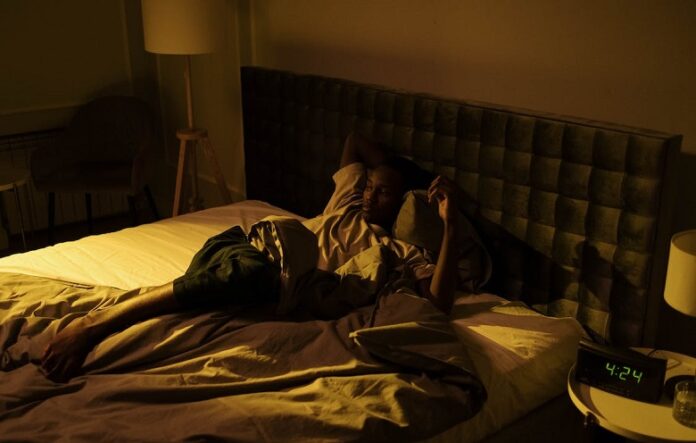Getting a good night’s sleep can be difficult for those with sleeping problems. Therapy emerges as a potent ally in addressing the complexities of sleep-related challenges despite the existence of various approaches. We shall learn how treatment, with its sophisticated methods and approaches, can help people with sleep problems tremendously, providing long-term gains in addition to short-term alleviation for a peaceful and revitalizing sleep.
Cognitive Behavioral Therapy for Insomnia (CBT-I): Unlocking Healthy Sleep Patterns:
Table of Contents
Cognitive Behavioral Therapy for Insomnia (CBT-I) stands out as a gold standard in therapeutic therapies for sleep disorders. CBT-I, in contrast to conventional talk therapy, is especially concerned with changing beliefs and actions associated with sleep.
With this focused approach, the root causes of insomnia and other sleep-related problems are addressed. Cognitive restructuring, which enables you to recognize and confront unfavorable ideas or concerns regarding sleep, is a crucial component of CBT-I. By changing these ideas, you can cultivate a calmer, more optimistic state of mind that promotes sleep. Sleep restriction, a strategy that entails adjusting the length of time spent in bed to correspond with the quantity of sleep you’re really obtaining, is another essential component.
Mindfulness-Based Stress Reduction (MBSR) for Sleep Calmness:
The use of Mindfulness-Based Stress Reduction (MBSR) has shown to be a beneficial treatment strategy for those with sleep difficulties, particularly those resulting from worry and stress. To improve present-moment awareness and promote a non-judgmental and welcoming attitude toward thoughts and emotions, MBSR integrates mindfulness meditation with yoga. MBSR tackles the racing thoughts and concerns that often precede nighttime in the context of sleep.
By practising mindfulness meditation, you can learn to notice these ideas objectively and let them go without adding to your stress. Body scan meditations, which lead you through a focused awareness of various body areas and encourage physical relaxation and tension reduction, are also included in MBSR. Beyond the meditation sessions, MBSR cultivates awareness by affecting your everyday life and giving you strategies to handle stresses that might interfere with your sleep.
Sleep Hygiene Education: Building Habits for Restful Nights:
Education on good sleep hygiene is a crucial part of therapy for sleep problems. The goal of this treatment method is to educate people about the environmental and lifestyle elements that affect the quality of their sleep. It acknowledges that little adjustments to everyday routines can have a big impact on better sleep.
Creating a pleasant sleeping environment, sticking to a regular sleep schedule, and avoiding stimulants like coffee and electronics just before bed are just a few of the things that sleep hygiene instruction can cover. Therapy sessions assist you in recognizing and making these changes, customizing them to your unique routines and difficulties.
Stress Management Techniques for Nocturnal Tranquility:
Stress is a major obstacle to quiet evenings for many people who suffer from sleeping difficulties. If you live in New York just look up a therapist in New York to find the most suitable one for you. A variety of stress-reduction strategies are introduced in therapy to ease the physical and psychological strain that might disrupt sleep. These methods cover a variety of modalities, giving you a toolset to manage and reduce stress efficiently.
Progressive muscle relaxation (PMR), which involves methodically tensing and then releasing various muscle groups to promote physical relaxation, is a well-known stress management technique. Biofeedback is another useful method that makes use of sensors to provide real-time data regarding physiological processes such as heart rate and muscular tension. You can learn to control these physiological reactions with therapy coaching, which lowers stress and promotes a sleep-friendly environment.
Exploration of Underlying Psychological Factors: Unraveling the Sleep-Emotion Connection:
A thorough investigation of the emotional and psychological elements that could be causing irregular sleep patterns is part of therapy for sleeping problems. It looks behind the obvious symptoms to identify any lingering problems, traumatic experiences, or emotional difficulties that could be causing insomnia or other sleep-related disorders.
You can comprehend the complex relationship that exists between your mental health and sleep via this therapeutic investigation. For example, insomnia can be a symptom of unresolved trauma, worry, or sadness. You can address and process these underlying psychological problems in therapy, which creates a secure and supportive environment. This will enable you to build coping mechanisms and ways to manage the emotional components impacting your sleep.
Conclusion:
For those with sleeping issues, therapy is a comprehensive and powerful resource. To help you achieve comfortable and refreshing sleep, therapy addresses the underlying problems and offers helpful solutions. Accept the healing journey and discover the possibility of a more restful and rejuvenating sleep.











